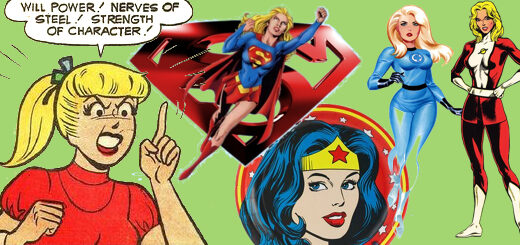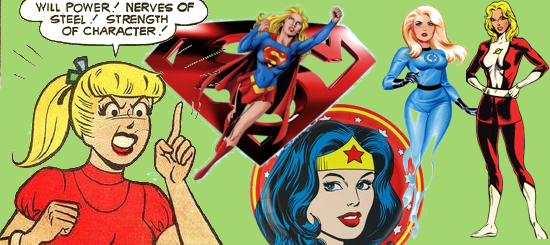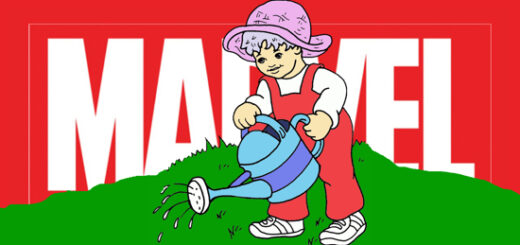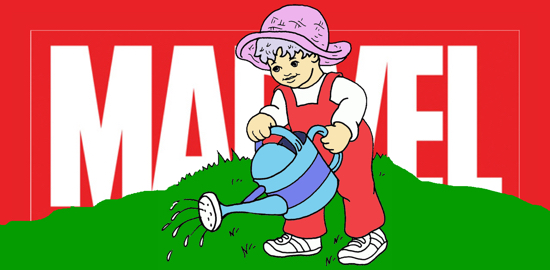Martha Thomases: Adventures On Other Words
When I saw Moonlight, the first thing I said as the lights came up was “school sucks.” And it does.
I think this will be spoiler-free, but if you haven’t seen this magnificent movie, I hope you go as soon as you can. Like the best art, it showed me a new way of seeing the world and made me feel emotions that bound me to the characters. Although this is in no way real, for the two hours of that film, I was a self-loathing gay black man, unable to express my personal truth.
My life is privileged, however, and part of that privilege is comics.
Chiron, the boy/teenager/man who is the main character in the film, is not very articulate. This isn’t an unusual trait in a child. We all struggle to learn how to use our words. Unfortunately for him, none of the other adults in his life know how to express themselves either. His mother is a drug addict. The adults at school are overwhelmed with responsibilities that don’t allow them to take the time to notice one kid’s problems. The only exception is Juan, the neighborhood drug dealer, who offers the closest thing to fathering that Chiron gets. Later, his girlfriend, Teresa, offers him a refuge.
I’ve written frequently about how fiction helps me get through tough times. Reading a story about someone else’s reality has been a comfort since I was younger than Chiron at the beginning of the film. My mother turned me on to her favorite children’s author, E. Nesbit, and I felt understood in a way that really makes no logical sense. A Jewish kid in Ohio has very little in common with a bunch of English kids with magical friends, created by a Fabian Socialist. Still, I related to their confusion, to their sense that adults didn’t get it.
In a slightly different way, I found similar comfort in Greek and Norse mythology. I wanted to be one of the magnificent and beautiful gods. I thought they might understand me when reality didn’t. I bet gods never fell down and scraped their knees.
From these tales, I discovered superhero comics. These had the advantage of being new every week, instead of being old stories completed thousands of years ago. I wanted to be all the characters. I wanted to be Robin and Supergirl, Plastic Man and Wonder Woman. Wanted to be a telepath and I wanted to be invisible. I wanted to be Betty and Veronica.
Through these stories, simple though many were, I learned that all humans have hopes and fears, insecurities and passions. And even now, decades (and decades) later, I continue to learn this over and over again. I need to, because it’s all too easy to see people as cardboard stereotypes. It’s even easy to see myself as a stereotype.
For example, if I were the blatant red-neck Trump victim, hating on Muslims and immigrants and elites (a person who probably doesn’t entirely exist, at least not as this stock figure), I might read Southern Bastards and feel like somebody finally got me. And maybe, as I read each issue, I’d see that even the characters that didn’t look like me and how it feels to be them in the same kind of small town in which I lived. And, even if I didn’t get that part, I might enjoy some of the recipes sent in to the letters page.
And if I had strange feelings in my body that I couldn’t quite describe, if I didn’t know what changes were going on or whom I should tell about them, I might feel better after reading The Old Guard. In this case, the odd changes have to do with immortality, not sexuality or gender identity, but I think the quivering uncertainty applies to all of us.
A book that continues to knock me out, perhaps because it touches on so many of my personal obsessions, is The Beauty, about a sexually transmitted disease that makes its victims beautiful before it kills them. Sometimes people try to get the disease so they can be good-looking. A recent storyline had a trans protagonist, and I was engaged trying to figure out how the virus chose which traits were pretty, and if these traits were different depending on one’s gender, and whether that gender was determined by the same criteria demanded of North Carolina restrooms. If you get the disease in a culture with different standards than ours, do you acquire different traits? How is it that the fashion/cosmetics industry hasn’t thrown all their resources into finding a cure, given that the illness makes their products irrelevant?
Is it a blind spot of my white privilege that I don’t see that the solace I get from books wouldn’t necessarily help Chiron? Maybe. Music and dance, poetry, theater and movies, all can provide the same balm to the soul. I’m in favor of all of those. Still, I think books are the easiest to put in one’s pocket.
There are no books in Chiron’s house. If there is a local library, it isn’t part of his world. We don’t even see him watching television. Instead, he is isolated.
In an ideal world, we would all have brilliant, loving parents and other adults in our lives. In their absence, we have books.














